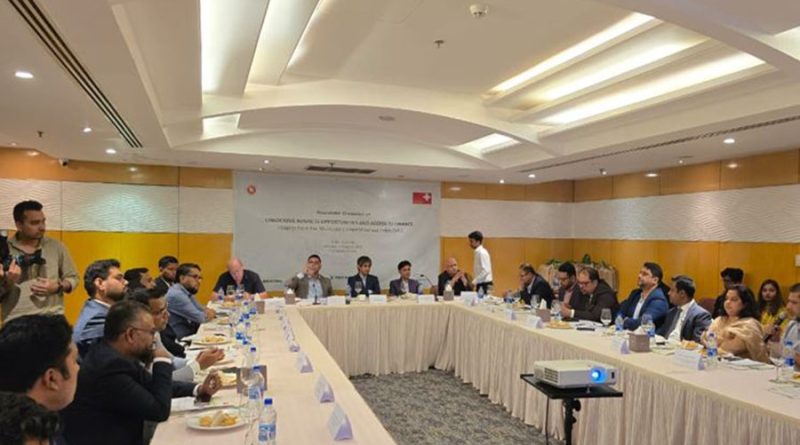Many local businesses in Bangladesh face significant challenges in securing loans from formal financial institutions, limiting their capacity to grow and diversify, according to the latest Municipality Competitiveness Index (MCI).
The MCI’s fifth pillar—focused on economic potential and sectors—reveals that most enterprises rely heavily on personal savings and have limited access to varied financial instruments, creating a financing gap that hampers expansion.
The findings were presented Tuesday at a high-level roundtable titled “Unlocking Business Opportunities and Access to Finance: Insights from the Municipal Competitiveness Index (MCI)”, organised by Policy Exchange Bangladesh in partnership with the PRABRIDDHI project of Swisscontact. The event, held at The Westin Dhaka, brought together senior officials from government agencies, banks, non-bank financial institutions (NBFIs), development partners, and municipal business representatives.
Streamlining Access to Finance
Speakers underscored the need for simplified loan procedures, digitised training, improved licensing systems, and targeted support for women entrepreneurs. They also called for evidence-based municipal reforms to unlock local economic potential.
Dr M Masrur Reaz, chairman and CEO of Policy Exchange Bangladesh, and Md Ziaur Rahman, senior policy analyst, presented the MCI’s data-driven insights and discussed their implications for local reform agendas. Nahin Ferdous, senior manager of Swisscontact’s Local Economic Development (LED) project, outlined strategies to strengthen municipal economies through enhanced financial access and targeted interventions.
Voices from the Field
Syed Abdul Momen, additional managing director and head of SME banking at BRAC Bank, highlighted a lack of awareness among many small and medium entrepreneurs regarding loan application requirements, documentation, and procedures. He noted that applicants often need to visit 10–15 different offices to secure the necessary documents, causing delays and discouraging potential borrowers.
Bogura-based entrepreneur Tahmina Parvin cited fragmented licensing processes, insufficient local training—particularly for women—unrealistic loan terms, and skill gaps as barriers to female-led business growth, especially in the hospitality sector.
Policy Perspectives
BIDA Director General Jibon Krishna Saha Roy described the MCI as a critical tool for identifying municipality-level strengths, challenges, and opportunities, urging concrete recommendations and reforms to bridge financing gaps.
Swisscontact Bangladesh Country Director Helal Hussain emphasised that the MCI follows a globally recognised model, previously implemented in countries such as Honduras, and has been introduced in Bangladesh to strengthen private sector development through data-driven policymaking.
PRABRIDDHI—co-funded by the governments of Bangladesh and Switzerland and jointly implemented by Swisscontact and the Local Government Division—aims to improve the business environment, boost economic competitiveness, and enhance municipal service delivery through evidence-based reforms.






